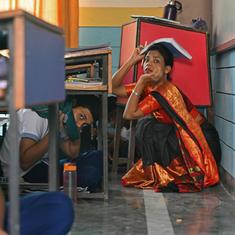Samjhauta Express blasts: Pakistani woman moves Punjab and Haryana HC against acquittal of accused
Rahila Wakil filed the appeal on Friday through her counsel Momin Malik.

A Pakistani woman, the daughter of one of the 68 people killed in the Samjhauta Express blasts in 2007, on Friday filed an appeal before the Punjab and Haryana High Court challenging the acquittal of Aseemanand and other accused in the case, PTI reported. A special National Investigation Agency court had in March acquitted Aseemanand, Lokesh Sharma, Kamal Chauhan and Rajinder Chaudhary in the case.
Rahila Wakil filed the appeal on Friday through her counsel Momin Malik. “The appeal was filed by me on her behalf before the high court wherein we have challenged the Panchkula NIA court’s verdict acquitting Swami Aseemanand and three others,” Malik said.
The advocate said the plea will soon come up for hearing, The Indian Express reported. The petition includes the central government, the Haryana Police, the National Investigation Agency and the accused as respondents.
The special NIA court had considered but dismissed Wakil’s plea before passing its judgement in the case in March.
The explosion, which took place on February 18, 2007, had killed 68 people, including 10 Indians. In its chargesheet, the NIA said the blast had targeted Pakistani Muslims. The incident happened at Diwani village near Panipat, 160 km from Panchkula in Haryana. The train, which connects India and Pakistan, was heading toward Attari, the last station on the Indian side.
The NIA’s chargesheet had named several people, including Aseemanand, who was acquitted in the Ajmer Dargah blast case in May 2017 after prosecution witnesses turned hostile. Last year, Aseemanand was also acquitted in the 2007 Mecca Masjid blast case. Nine people were killed and 58 injured after an improvised explosive device exploded in the mosque in May 2007.
Union Home Minister Amit Shah on Wednesday told Parliament that the chargesheets filed in the Samjhauta Express blast case did not have any substantial proof, while defending the government’s decision not to file an appeal against those acquitted in the case. Shah alleged that the case had been instituted with a political motive.









